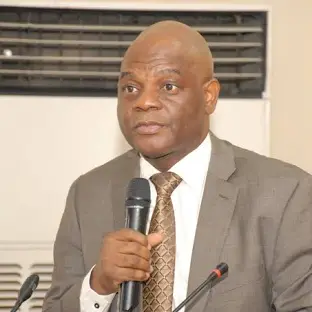As the world commemorates World Malaria Day, Korede Abdullah, Southwest correspondent for Africa Health Report, explores the profound impact of malaria on Nigeria’s public health and development.
A Grim Reality Amid Global Progress
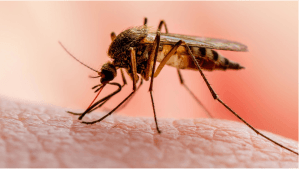
As the world marks World Malaria Day 2025 under the theme “Malaria Ends With Us: Reinvest, Reimagine, Reignite,” Nigeria remains at the epicenter of the crisis. Despite decades of global partnerships, programs, and pledges, malaria continues to devastate the country. Nigeria alone contributes over 30% of global malaria deaths, with more than 100 million cases annually.
These are not just numbers—they are reflections of weak health systems, underfunded interventions, and a worrying dependence on foreign aid. For many Nigerians, especially children under five and pregnant women, malaria is not a disease of the past—it is a daily and deadly reality.
The Global Report—and Nigeria’s Stark Position
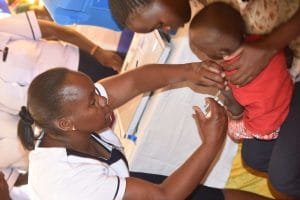
The World Health Organization’s latest report paints a stark picture: Africa accounted for 94% of global malaria cases and 95% of deaths in 2023, with Nigeria leading the toll. While WHO celebrates global progress—over 13 million deaths averted since 2000—such gains remain fragile.
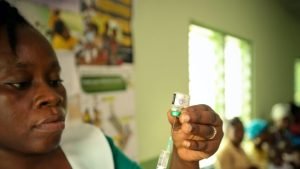
WHO Director-General Tedros Ghebreyesus warned that history has shown a tendency for resurgence when attention fades. His call for political will and community action is particularly urgent for Nigeria, where leadership lapses and poor health infrastructure persist.
Local Leadership and the Call for Emergency Action
The launch of the End Malaria Council by successive Nigerian presidents and the involvement of billionaires like Aliko Dangote and Tony Elumelu are encouraging signals of local commitment.
However, civil society leaders like Francis Nwapa of the #EndMalariaInNigeria campaign argue that grand councils mean little without tangible reform.
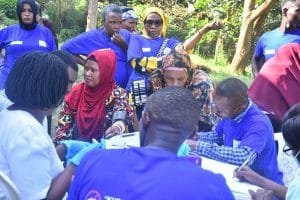
In a bold statement on Thursday, Nwapa called for Nigeria to declare a public health emergency on malaria, criticizing the country’s over-reliance on ineffective foreign aid and the misuse of allocated funds.
“We need to stop relying on aid that has not truly helped us,” he asserted, urging investment in domestic healthcare systems.
A Symbol of Neglect: The Fall of Local Institutions
Nwapa’s critique is not unfounded. The collapse of the Nigerian Vaccine Production Centre in Yaba, once a beacon of self-reliance, is symbolic of the broader institutional neglect.
Between 1940 and 1991, the facility played a critical role in producing vaccines for smallpox and yellow fever. Today, it lies abandoned—an opportunity lost in the fight against malaria.
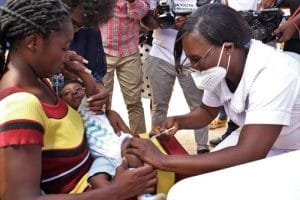
The foreign funding that did flow into Nigeria, including support from programs like Roll Back Malaria, has largely failed to reduce the nation’s malaria burden, raising questions about transparency, impact, and governance.
A Tale of Two Realities: Progress
Elsewhere, Stagnation at Home
Globally, there is reason for cautious optimism. Malaria vaccines such as RTS,S and R21 are now deployed in 20 African countries, providing new tools in the fight against the disease.
WHO has also highlighted the success stories of countries like Cape Verde, Mauritius, and Egypt, which have been declared malaria-free.
In the Western Pacific, nations like China and Malaysia have achieved remarkable reductions in cases. Yet, the same cannot be said for Nigeria, where systemic issues remain unresolved and basic access to care is still a luxury for many.
From Rhetoric to Results: What Nigeria Must Do
The broader message of World Malaria Day 2025—to reinvest, reimagine, and reignite the fight—resonates loudly in Nigeria. For these aspirations to materialize, medical experts say there must be a shift from rhetoric to results. Increased domestic funding, community-level interventions, improved sanitation, and the reactivation of local manufacturing are crucial steps.
“The real test will be whether Nigeria can demonstrate the political courage to prioritize health as a national security issue and not just another donor-driven development agenda.”, said Dr. Ademola Ajibade in a chat with Africa Health Report (AHR).
Confronting a National Emergency
It will be recalled that the Nigeria’s Coordinating Minister of Health and Social Welfare, Prof. Muhammad Pate, spotlighted the grave impact of malaria, calling it “not just a health crisis; it is an economic and developmental emergency.”

Speaking at the inaugural meeting of the Advisory on Malaria Elimination in Abuja in November last year, Pate revealed that malaria drains over $1.1 billion from Nigeria’s GDP annually, underscoring the disease’s devastating toll on both lives and livelihoods.
“With 27 per cent of global malaria cases and 31 per cent of global malaria deaths, our country bears the heaviest burden of this disease,” he stated, adding that in 2022 alone, malaria claimed the lives of over 180,000 Nigerian children under five—deaths that are entirely preventable. The launch of the advisory body, he affirmed, is “a bold and decisive step to confront and address the disease.”
The Road Ahead: Ownership over Aid
Analysts say until Nigeria commits to bold, homegrown reforms and holds itself accountable for every naira spent, malaria will continue to be a leading killer in the country. The dream of a malaria-free Nigeria is not impossible—but it demands more than promises.
It demands ownership. As the world takes stock of progress, Nigeria must decide whether it will continue to be a cautionary tale or rise to become a model of transformation.


